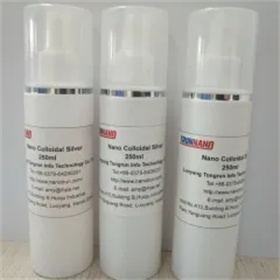The current research investigates the impact of a wide range of process parameters on the performance of three parts: Density, surface roughness, residual surface stress, and selective laser melting of Inconel 718. In addition to the lack of investigation into surface roughness and residual stress in the selective laser melting of Inconel 718, a process diagram was also developed to select the optimal process parameters, thereby achieving the expected values of the three combined parameters.

Five laser powers, six scanning speeds, and three opening distances were selected in a stable single trajectory experiment. Based on each characteristic, a density of 99.5% or 2 μ A surface roughness of m or a minimum surface tensile residual stress of 248 MPa is possible. However, no single combination of process parameters can obtain good values for all three parameters. Prioritizing density and surface roughness as crack initiators, the impact of residual stress on fatigue failure was found to be 99. At a hatch spacing of 320 W, 600 mm/s, and 0.12 mm, with a density of 2% and a roughness of 3.5 μ M. Finally, contrary to the commonly observed columnar grains in Inconel 718, mixed grain structures were obtained at 600 mm/s and 1000 mm/s, indicating a decrease in anisotropy.
The study further investigated the influence of differences on a wide range of process parameters and relative density, surface roughness, and surface residual stress. The measured performance is used to draw a process diagram, which is crucial for selecting the optimal combination of process parameters to achieve optimal part performance. It was found that no single combination of process parameters would result in optimized values for all three attributes together. However, due to the discovery that the residual stress values on the surface are all tensile stresses, and since density and surface roughness are the main stress concentration/crack initiation factors in fatigue failure, they take priority over surface residual stress. For this situation, the laser power is 320 W, the scanning speed is 600 mm/s, and the shadow spacing is 0.12 mm, resulting in a relative density of 99.2% and a relatively low surface roughness of 3.5 μ M.
On the other hand, if the selection is based on a property (density), as density is the reason for nucleation and growth in tensile testing, then hatch spacing of 270 W, 700 mm/s, and 0.1 mm is the most suitable parameter. Finally, it indicates that the formation of columnar grains, widely reported in the literature, can only be achieved at a scanning speed of 800 mm/s. Forming a mixed-grain structure can help reduce the expected anisotropy of mechanical properties for all other scanning speeds.
Inconel 718 powder is a high-temperature alloy powder with excellent high-temperature strength, corrosion resistance, and oxidation resistance, making it widely used in multiple fields, mainly including:
Application areas of Inconel 718 Powder
- Aerospace field: Inconel 718 powder is widely used in the manufacturing of components for aviation and rocket engines, such as turbine discs, blades, combustion chambers, nozzles, etc. These components require long-term operation in high temperature, high pressure, and corrosive environments, thus requiring high strength, oxidation resistance, and fatigue resistance.
- Energy field: Inconel 718 powder is also used in energy conversion and utilization fields, such as gas turbines, steam turbines, and nuclear reactors. High-temperature alloys manufacture key components such as rotors, blades, pipelines, and containers in these fields, which require long-term operation in high-temperature, high-pressure, and corrosive environments.
- Chemical industry: Inconel 718 powder is also widely used in the chemical industry, such as chemical equipment, reactors, heat exchangers, and pipelines. These devices require long-term operation in high temperature, high pressure, and corrosive environments, thus requiring high strength, oxidation, and corrosion resistance.

- Other fields:Inconel 718 powder can also be applied in automotive, electronics, metallurgy, construction, marine engineering, environmental protection, and healthcare. For example, Inconel 718 powder is used in architecture to manufacturing structural components and components for high-rise buildings. In the medical field, due to its excellent biocompatibility and corrosion resistance, it is used to manufacture medical devices, surgical instruments, etc.
Supplier
TRUNNANO is a supplier of molybdenum disulfide with over 12 years of experience in the manufacturing of chemical materials. It accepts payments through credit cards, T/T, Western Union transfers, and PayPal. Trunnano will ship the goods to overseas clients through FedEx, DHL, and air or sea freight. If you are looking for high-quality Inconel 718 powder, please get in touch with us and send us an inquiry.
